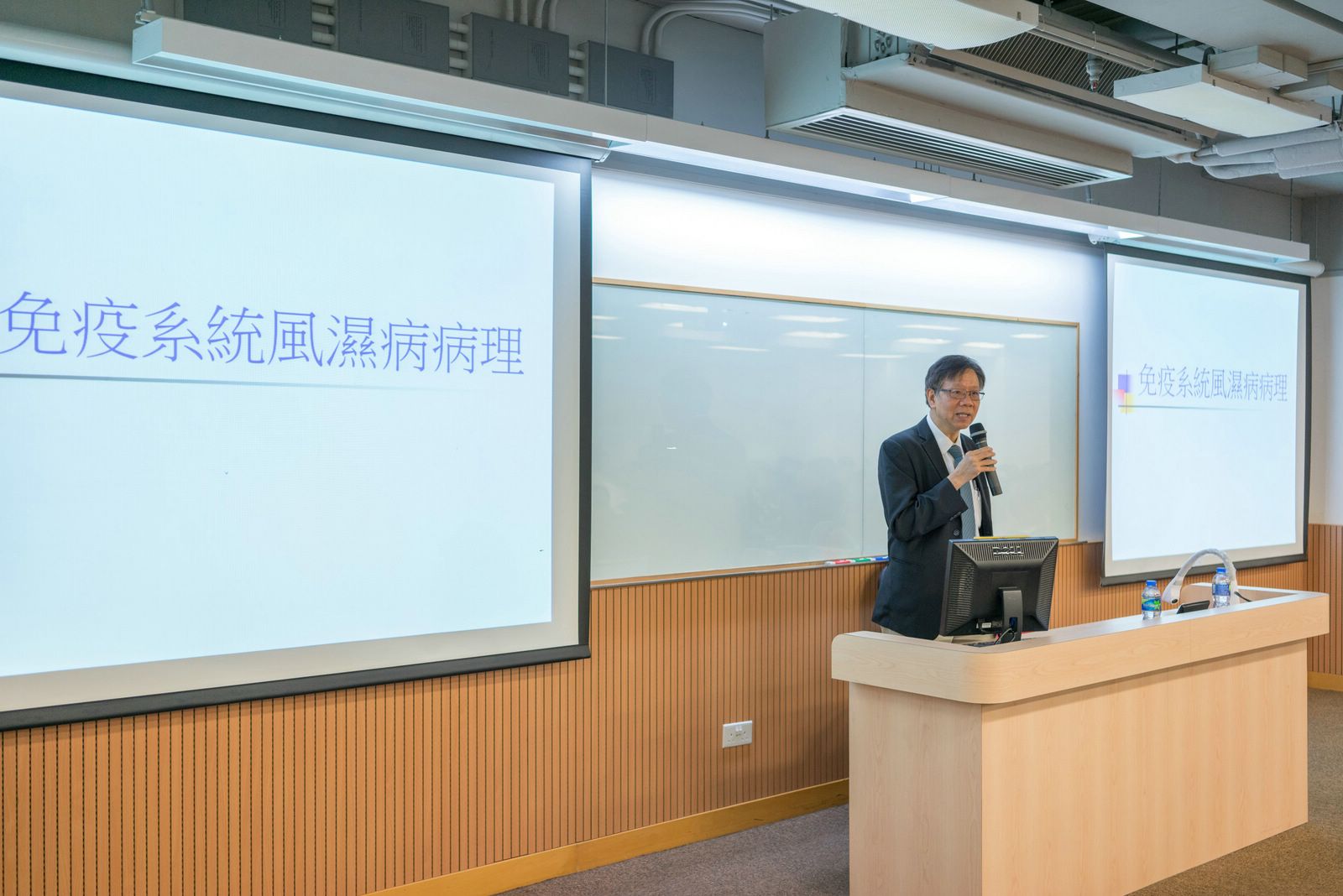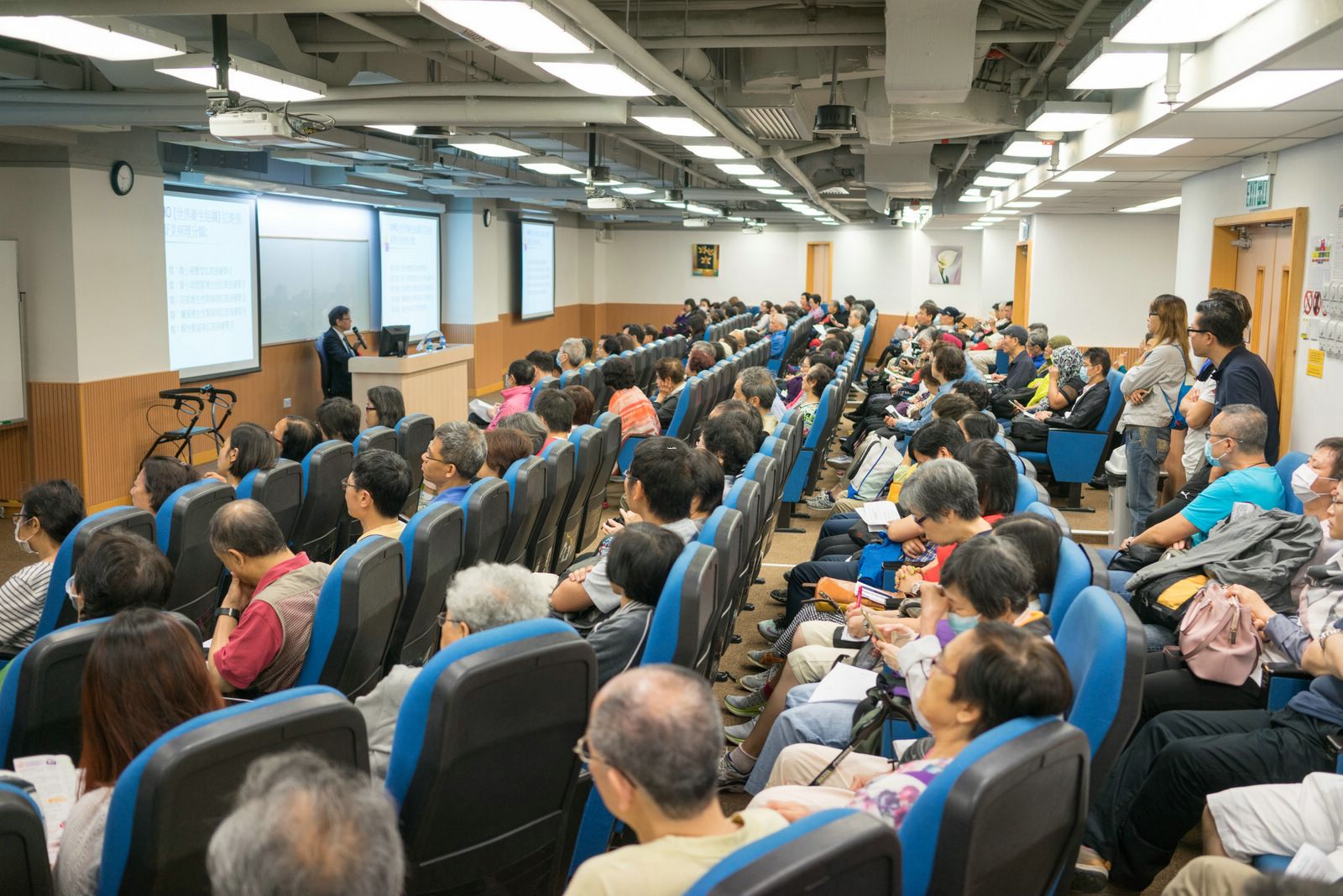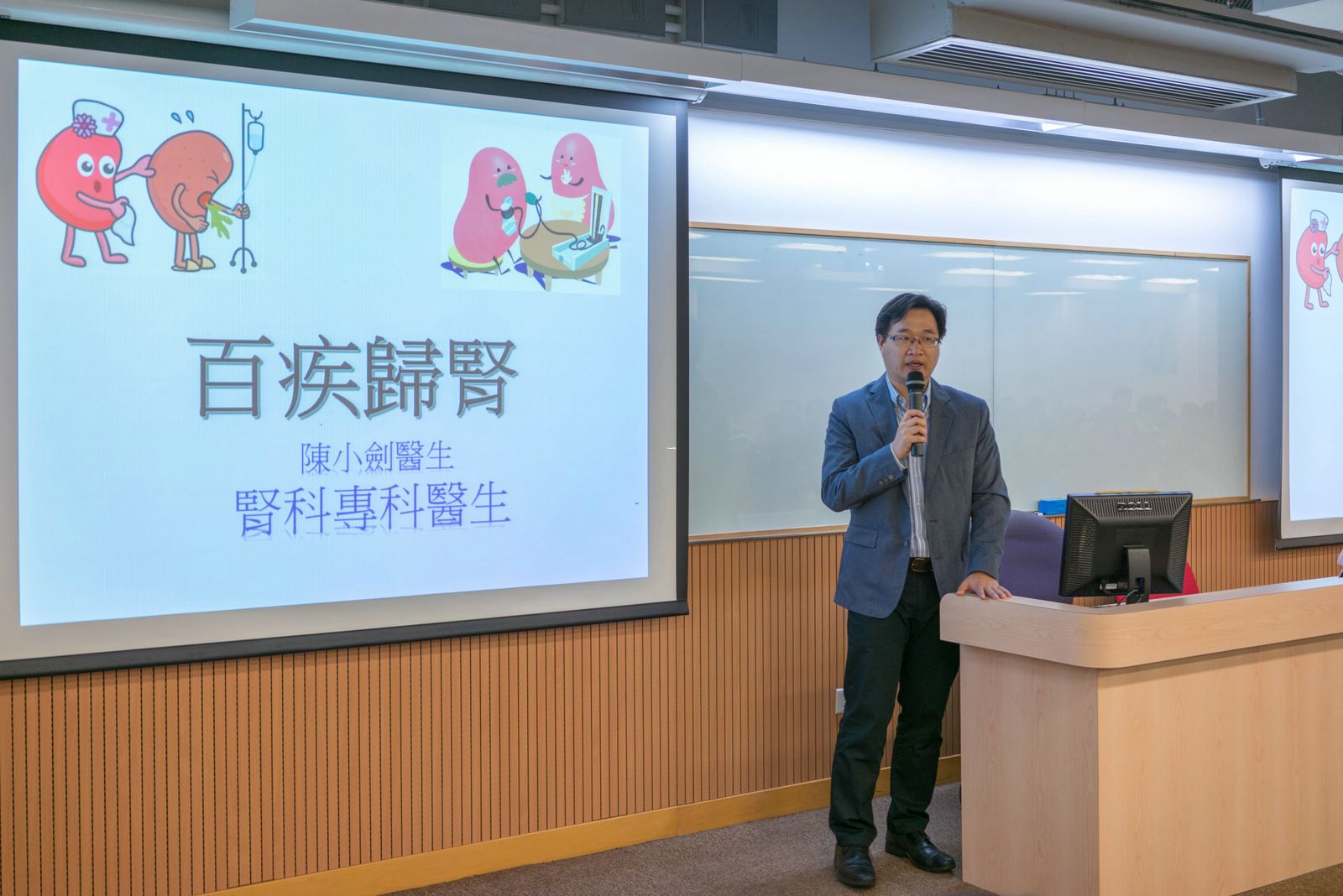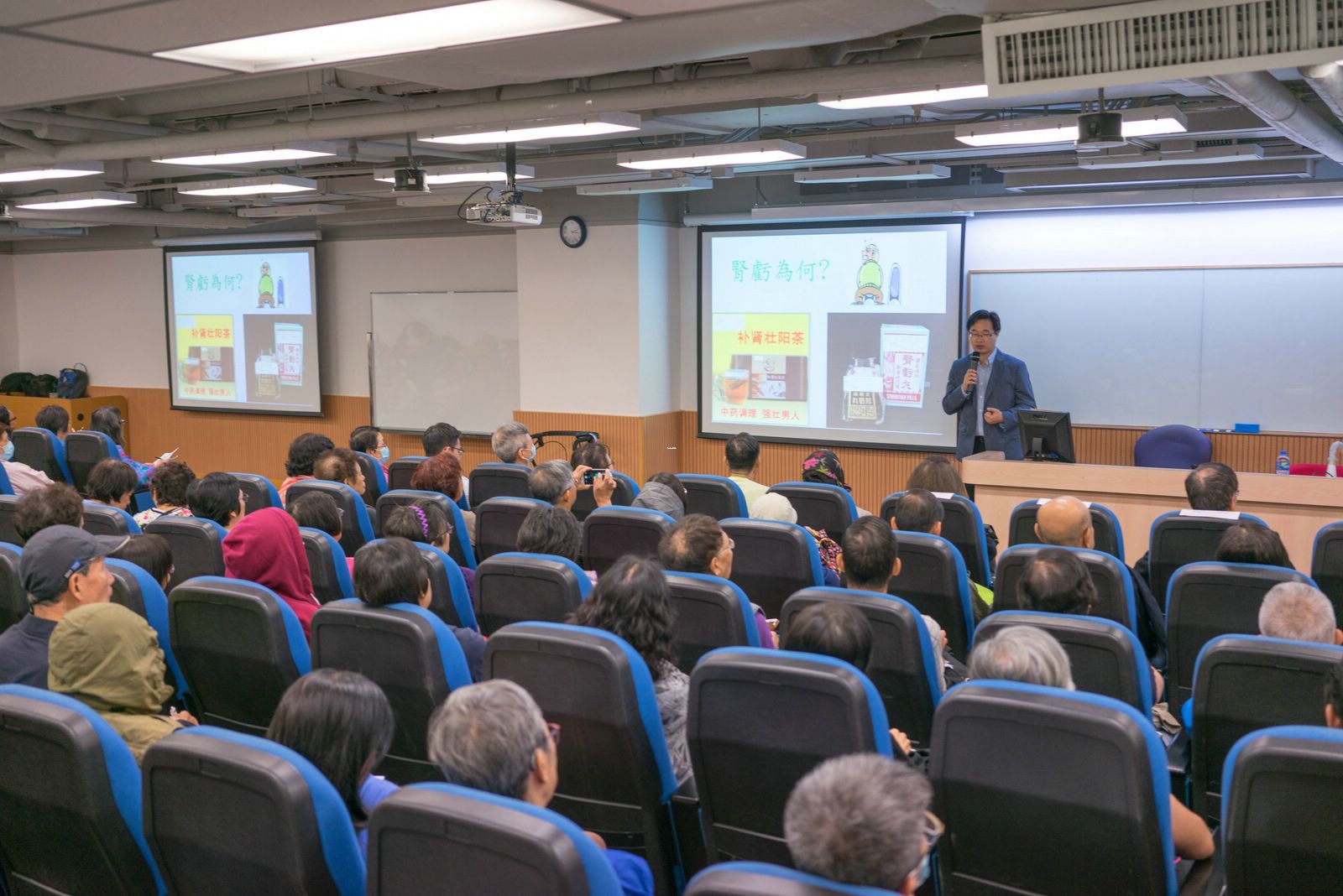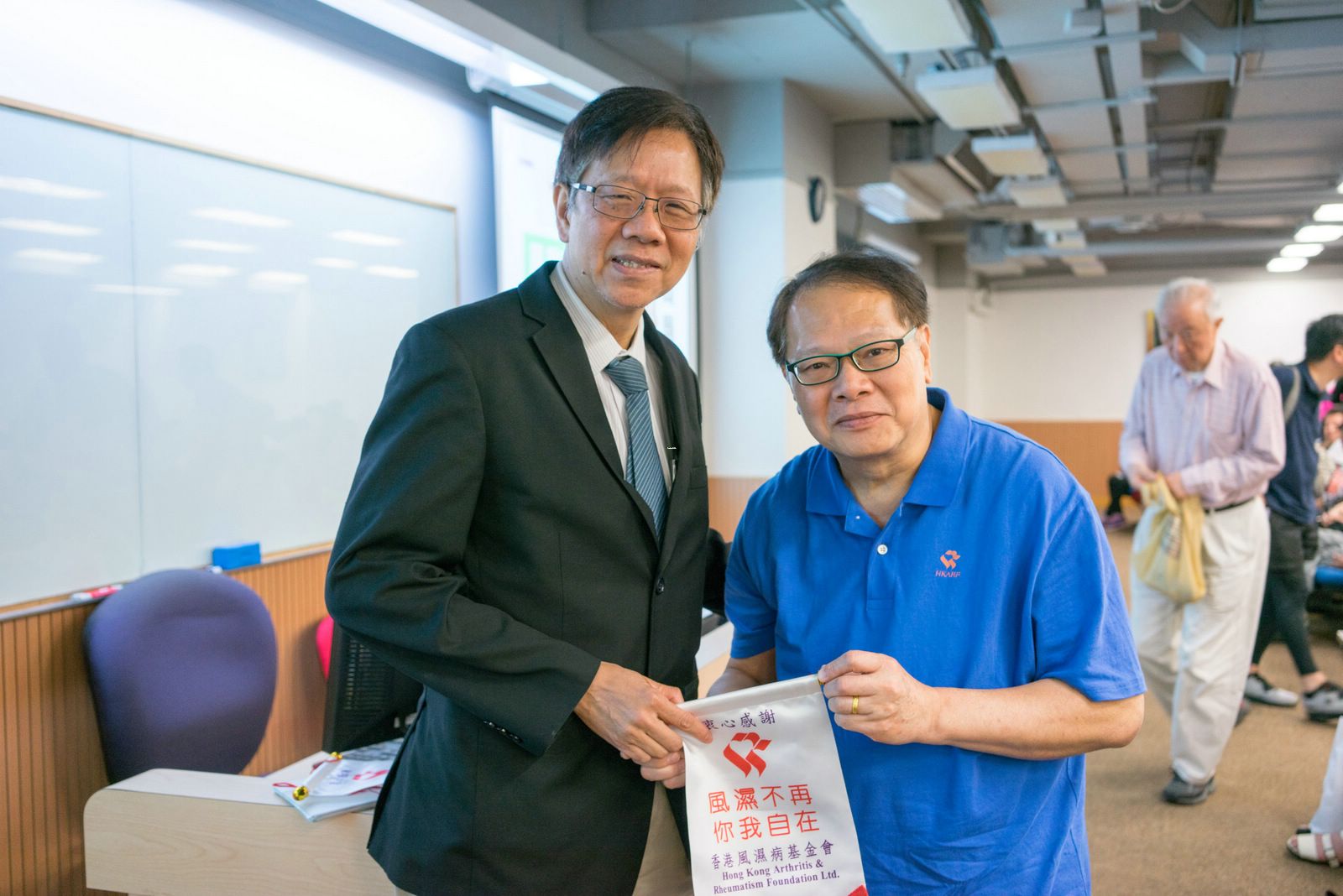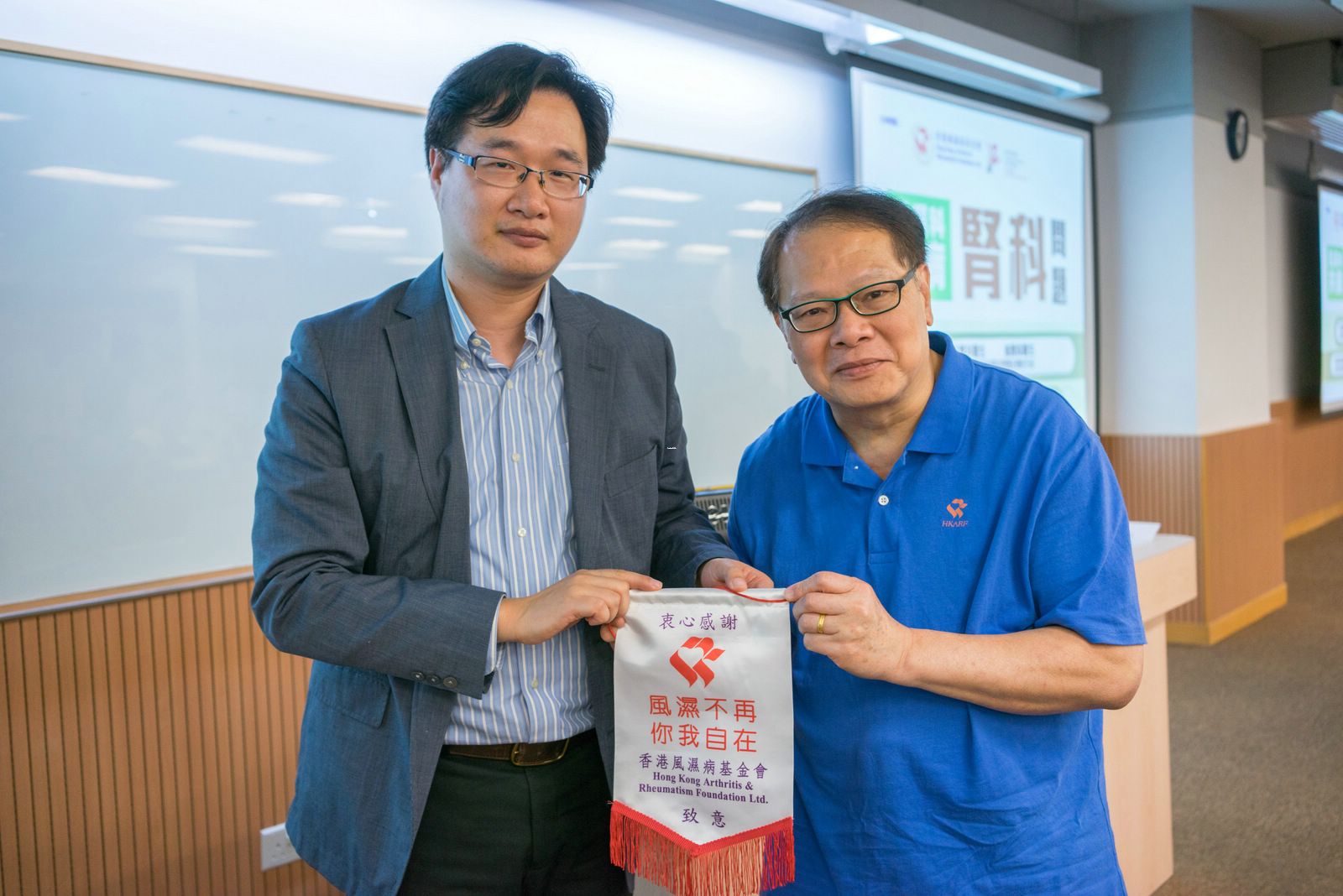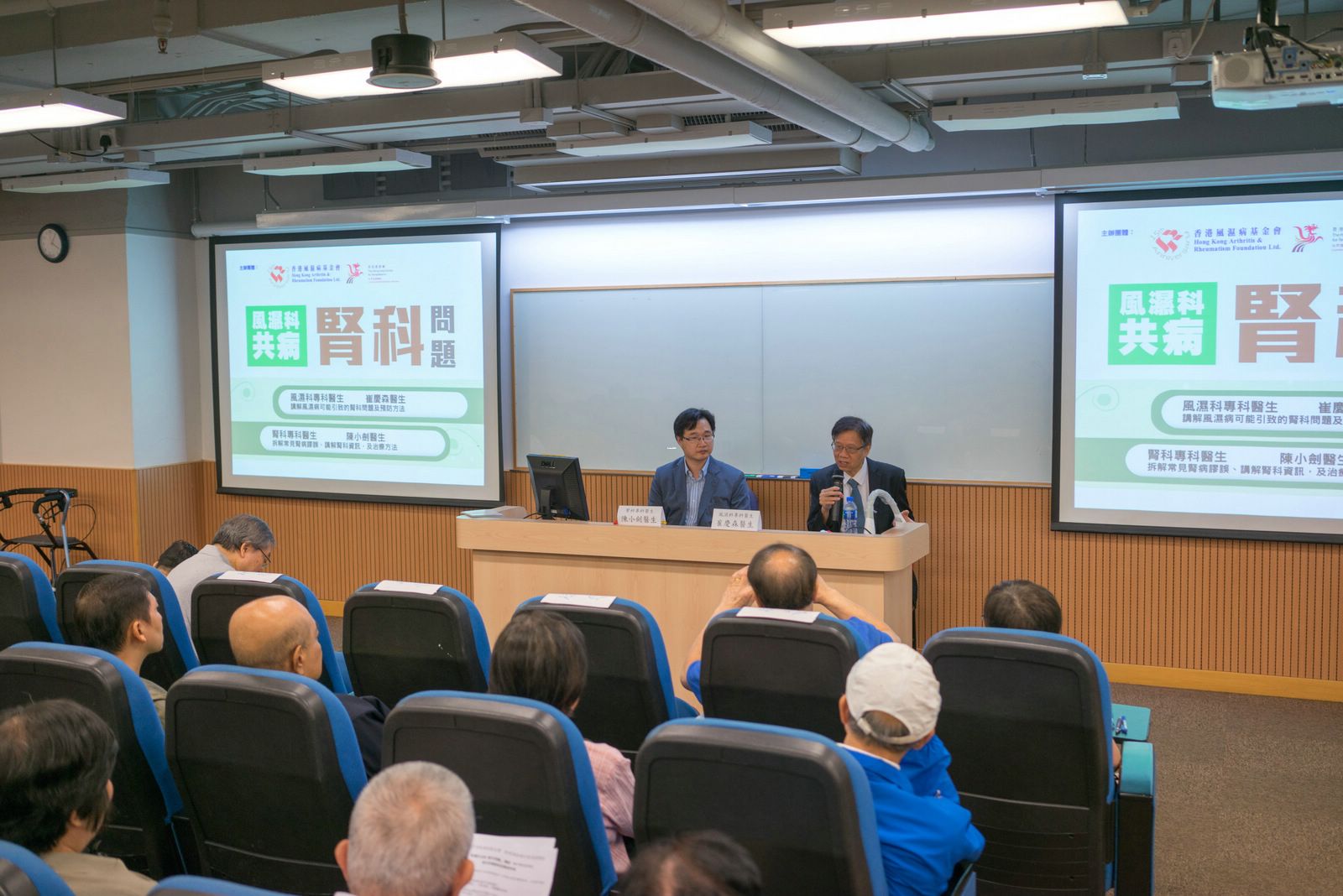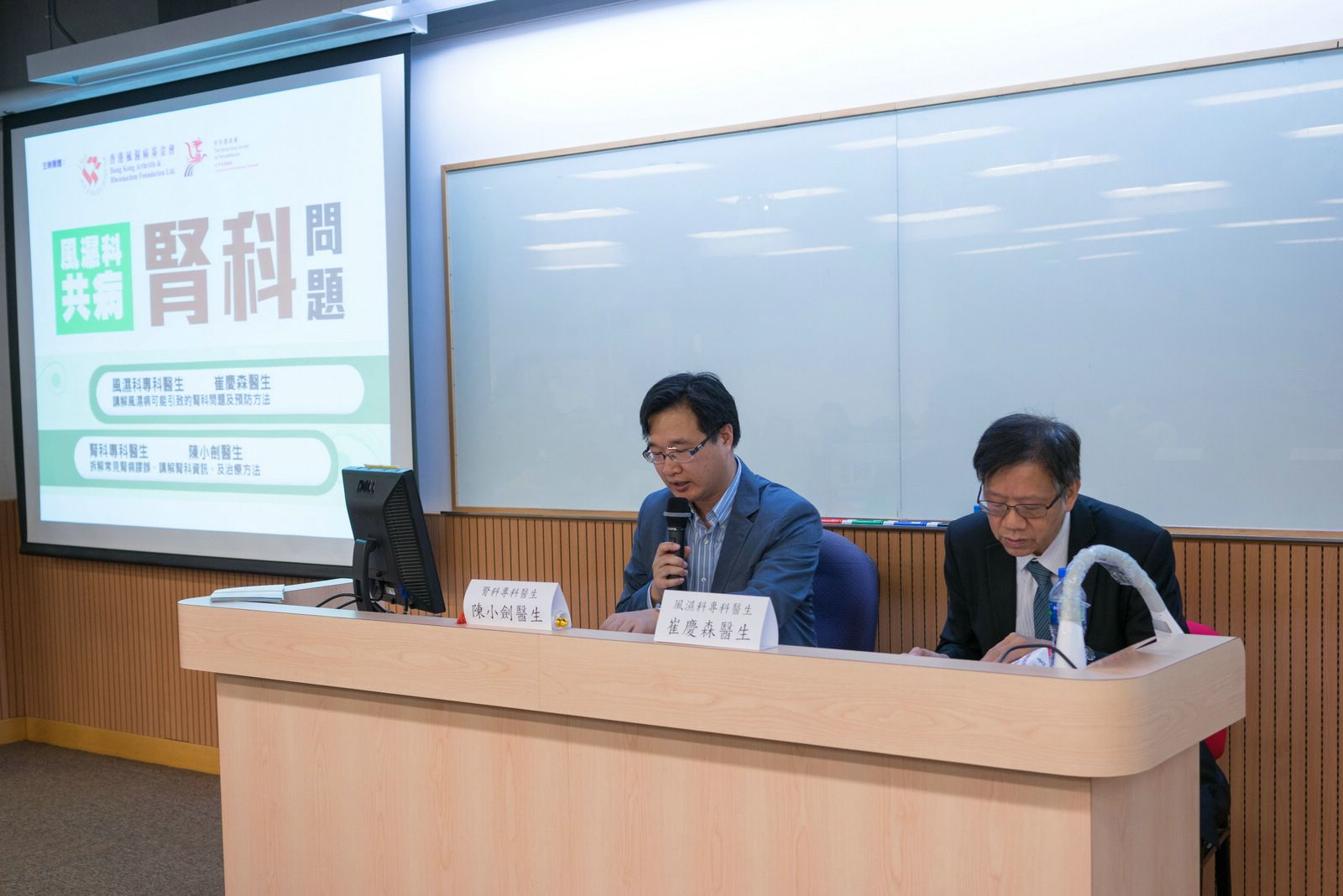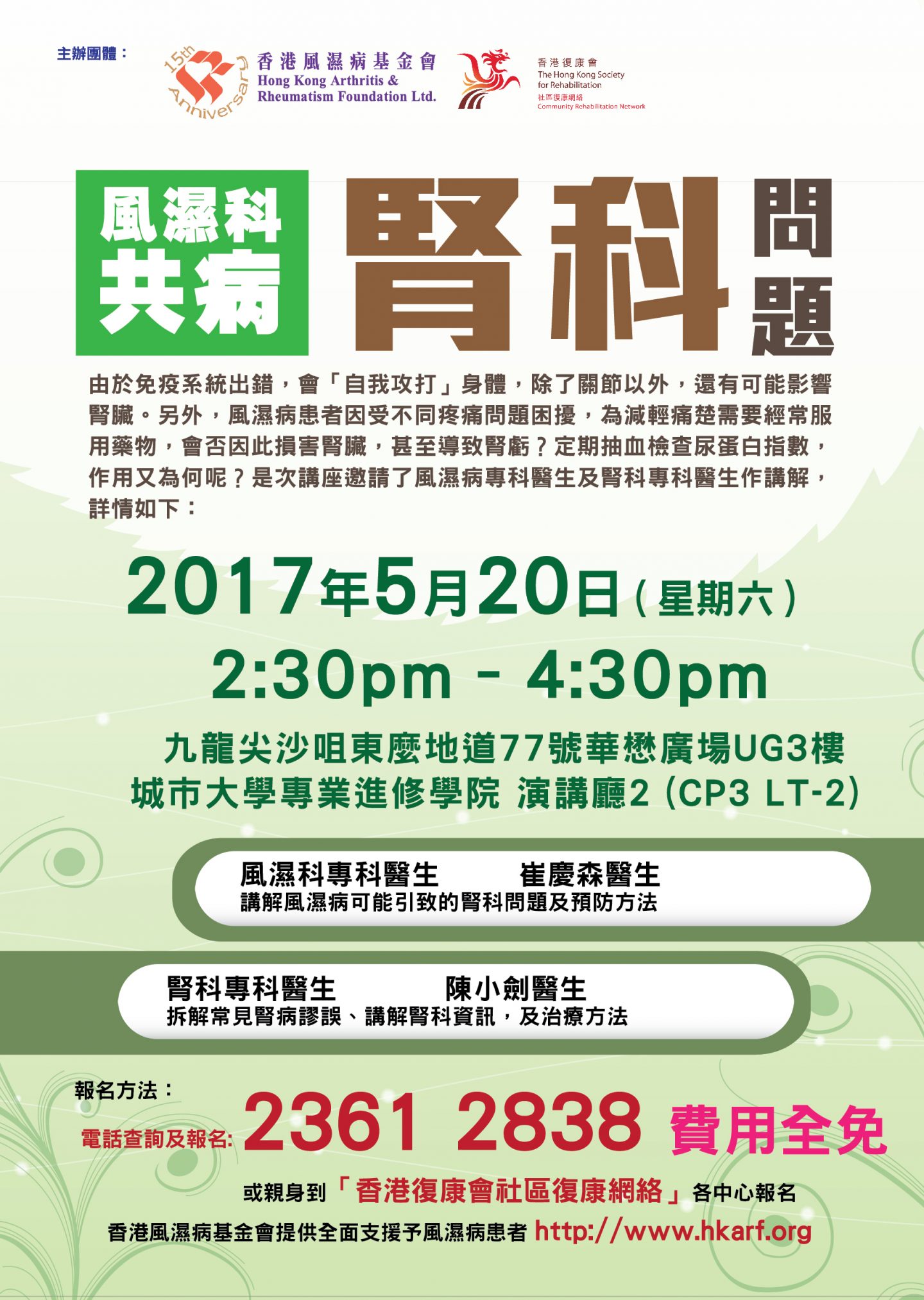
Seasonal Talk:
Nephrology & Rheumatology
20 May, 2017
Hong Kong Arthritis & Rheumatism Foundation Ltd. (HKARF) and Community Rehabilitation Network of the Hong Kong Society for Rehabilitation (CRN) jointly organized a quarterly talk which titled ” Complications of rheumatic diseases: kidney problems” on 20 May at SCOPE Lecture Theatre of the City University of Hong Kong. There were 206 participants on that day.
At the very beginning of the talk, Dr. Tsui Hing Sum Kenneth, a rheumatologist, briefly introduced the kidney -related rheumatic diseases, including systemic lupus erythematosus (SLE), vasculitis, anti-phospholipid syndrome (APS), systemic sclerosis (SS) and Sjogren’s syndrome (SjS). Dr. Tsui then illustrated the symptoms and the treatment of each disease in detail. Since it is hard to detect the symptoms of kidney disease in the early stage and kidney cannot be completely recovered once it has been damaged, it is important to prevent the onset of the complication. To prevent the diseases, patients are advised to closely collaborate with the heath care workers, take the medication properly, attend follow-up consultations regularly and talk to the doctor if he/she has trouble.
Dr. Chan Siu Kim, a nephrology specialist, explained the functions of kidney, the causes of kidney diseases and the association between kidney diseases and other illness thoroughly. Dr. Chan stated that many young patients are not aware of the treatment for high blood pressure and unfortunately cause kidney disease. However, uncontrolled hypertension is in fact one of the risk factors of kidney diseases. People might not notice any problem since the symptoms, such as low back pain and kidney pain, are mild in the early stage. People who suspect kidney disease should get blood and urine test to check for kidney disease. Treatments of kidney disease include control of blood pressure, control of diet, regular exercise and drinking enough water. Avoidance of non-steroidal anti-inflammatory drugs (NSAIDs) and Chinese medicine that damages renal functions is recommended for most individuals with kidney disease. Despite the absence of evidence supporting the direct effect of exercise on kidney disease, regular exercise is found to be beneficial to vascular problems, which indirectly improve the conditions.
All in all, participants are satisfied with the content and the arrangement of the talk and hope to participate in the upcoming talks. As patients with rheumatic diseases are often suffered from different complications, participants would like to gain a better understanding of the impact of the other complications in the future.

